Success Factors in Implementing Business Intelligence Applications
Are you looking for further assistance on this topic? You will find it here.
Success factors in implementing BI applications
Once the final selection of your business intelligence solution has been made, the implementation of the BI system can begin. The BI Survey 17 identifies several success factors affecting the implementation of BI projects, including implementation speed and the role of external consultants.
This article will help you to understand how implementing a business intelligence (BI) solution works and what makes the difference in a successful BI implementation.
Implementation speed
Implementation speed varies considerably between product types (Figure 1) and is one of the reasons why The BI Survey analysis is based on peer groups.
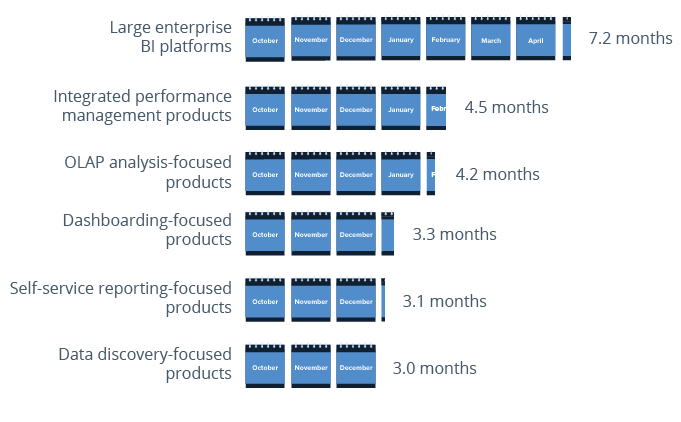
It could be argued that long-term, more complex projects such as the implementation of an enterprise reporting system should generate a higher level of business benefits. However, this correlation is not always observed in the data. In fact, implementations of advanced analysis tools, which are usually simpler and quicker to implement, were shown to achieve among the highest business benefits scores.
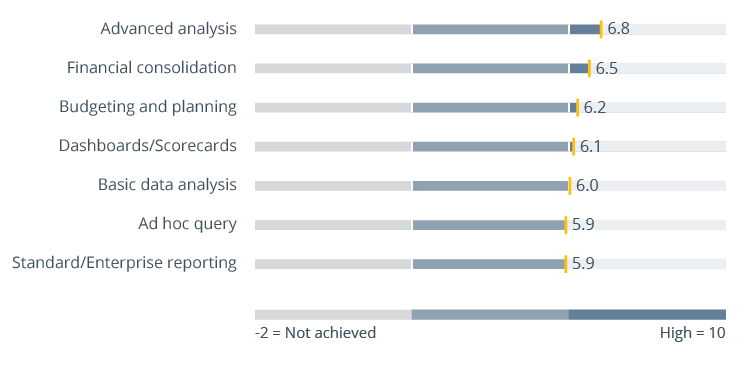
Fast implementation times are key to a successful project. The following charts show how business benefits levels fall as implementation time increases.
Business benefits analyzed by implementation time (n=2198)
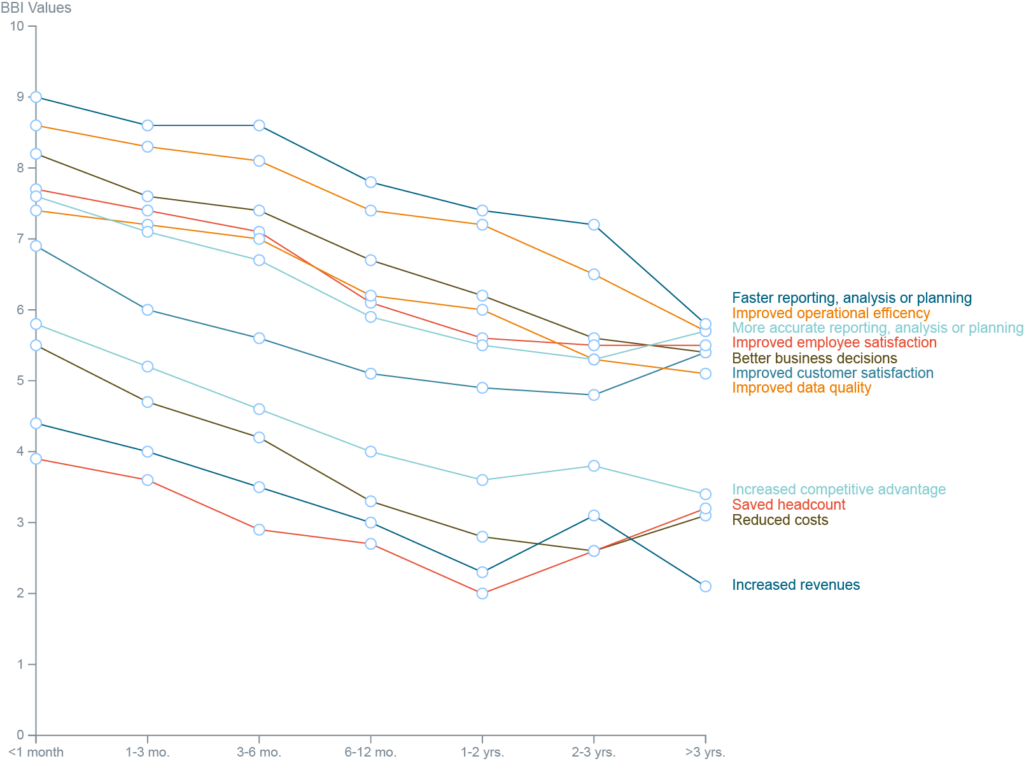
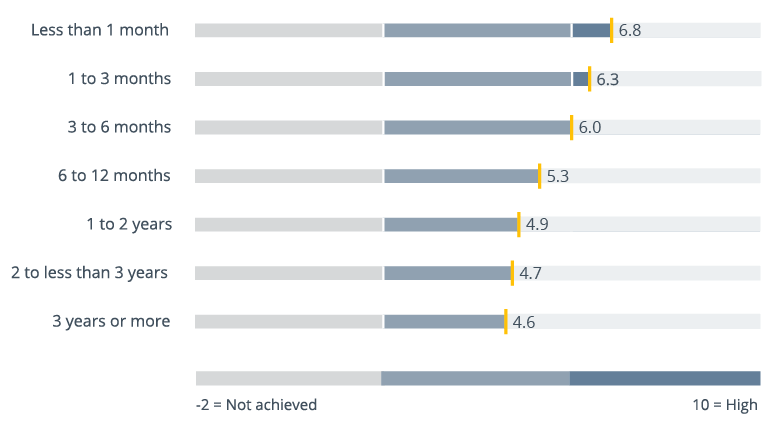
Projects taking more than six months to complete lead to significantly lower business benefits. Project implementation times appear to have a direct impact on the level of all business benefits; with benefits decreasing as project length increases.
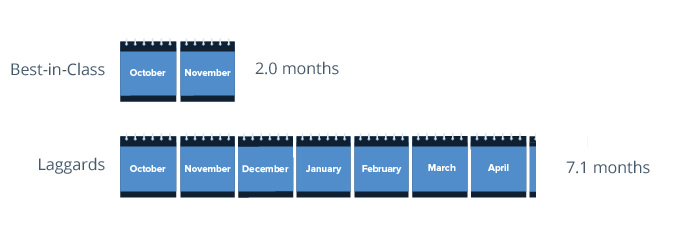
We analyzed the frequency of problems reported across projects of varying lengths. Figure 5 shows the link between project length and problem-free implementations.
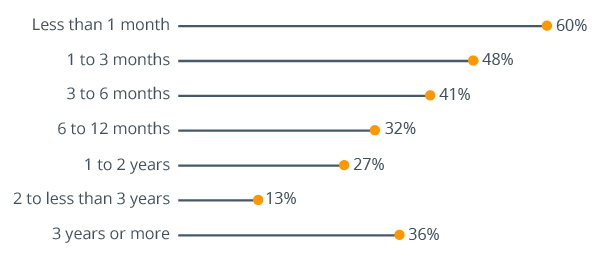
BARC Recommendations
- Aim for a three-month implementation window for the first application.
- If possible, try an incremental approach by breaking the project into a series of smaller projects.
Implementer and vendor support
The standard of service provided by consultants varies considerably. The BI Survey asked business users about their experiences with external implementer support as well as vendor support. We found a clear correlation between customer ratings of implementer and vendor support and business benefits achieved.
Seeing such a big difference in business benefits between different types of consultants does not come as a surprise. Figure 6 shows that good support from an implementation consultant is an important aspect of project success.
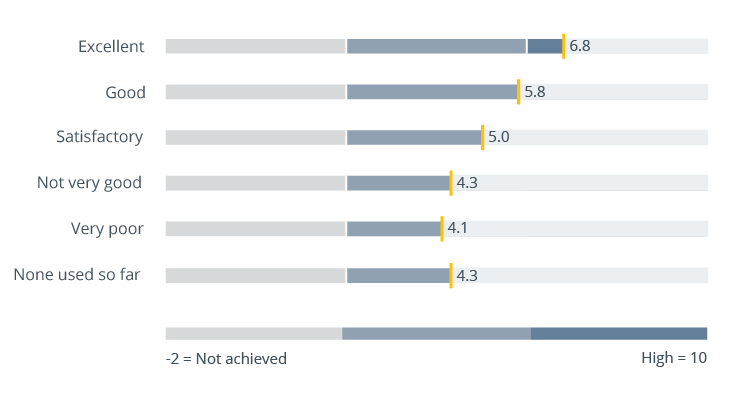
The difference in benefits between the best and worst support levels from vendors is even bigger than in the case of implementers (Figure 7).
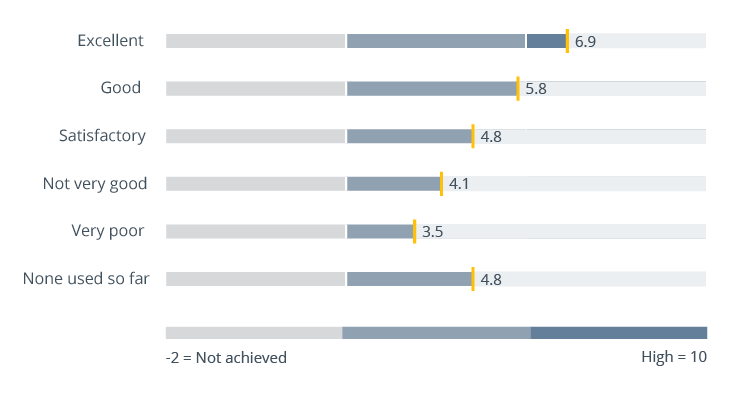
Finding the right vendor in combination with the right implementer is crucial to project success. In previous editions of The BI Survey, we used to ask about the type of consultants companies used. Results revealed that small, specialized consulting firms frequently scored better than large general purpose consulting companies.
BARC Recommendations
- Find the right implementer to bolster project success.
- Choose smaller specialized firms or vendor consultants for implementation rather than large general purpose consulting firms.
- Use the proof of concept to evaluate the quality of the implementation team as well as the product. Of course this only works if the team that will eventually carry out the implementation also carries out the proof of concept.








